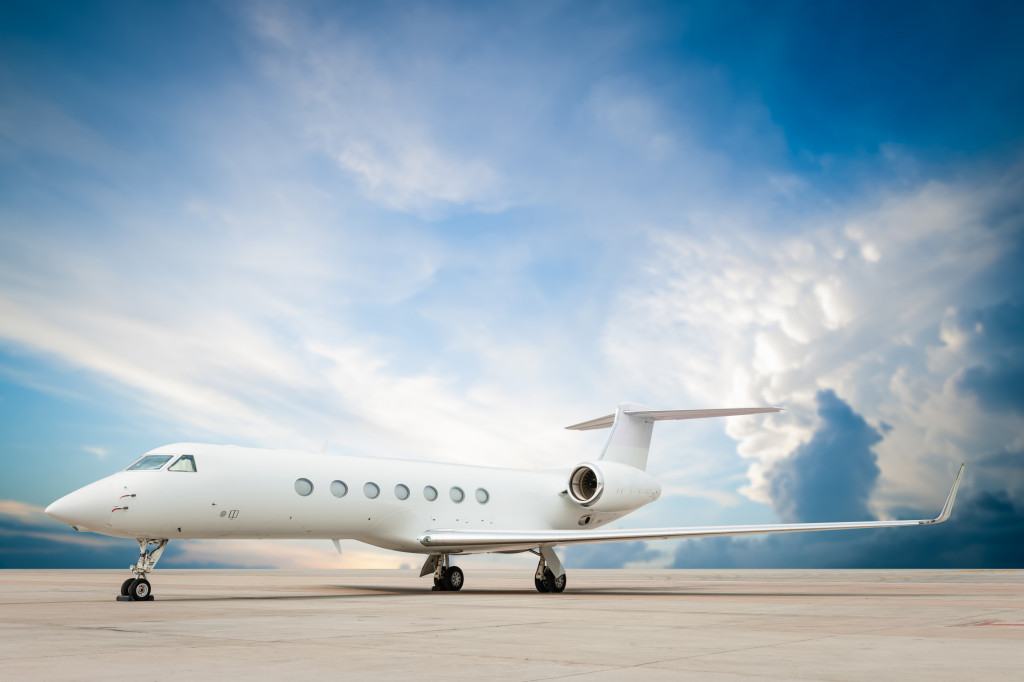- Keep the exterior and interior of the plane clean for improved performance.
- Invest in quality fuel filters, engine parts, and hydraulic power units.
- Equip aircraft with two-way radios for safer flights.
- Store the plane in climate-controlled areas when not in use.
- Install upgrades and modifications for improved performance and fuel efficiency.
Corporate planes are an investment that can significantly benefit your business, saving time and providing comfort to employees who need to travel frequently. But in order to get the most out of your investment, you must make sure to maintain your aircraft correctly. Here’s how to help extend its life and ensure that your plane is always safe to fly.
Keep Your Plane Clean:
A clean aircraft is not just aesthetic but can impact how it performs in flight. Dirt, oil, and other debris that accumulates on the exterior of the plane can create unnecessary drag and increase fuel consumption during a flight.
It’s not just the exterior of the plane that needs cleaning, but also the interior. Dust and debris can clog up ventilation systems, damage the upholstery, and cause foul smells.
Regular cleaning of both the exterior and interior of your corporate plane is essential to maintain your aircraft’s longevity. Make sure to appoint a trained professional to do the job, as they’ll have the necessary experience and equipment to clean your plane correctly.

Regular Check-ups and Maintenance:
Regular check-ups and maintenance are essential to extend the life of your aircraft. Planes require maintenance based on the number of hours they’ve been flown, so you need to monitor and maintain them on a schedule. Here are some necessary equipment to invest in:
Fuel Filters
Fuel filters are essential to keeping the engine of your corporate plane clean and running efficiently. Regularly checking and replacing fuel filters will help ensure that your aircraft receives only clean, safe fuel, thus preserving its life for longer.
Engine Parts
The engine is the most crucial part of an aircraft, and it must be adequately maintained in order to keep your plane running safely. Investing in quality replacement parts can help keep your engine running smoothly and reduce the risk of breakdowns.
Hydraulic Power Units
Acquiring high-quality hydraulic power units is essential for aircraft maintenance as they ensure that the plane’s systems are working correctly and will help to increase the life of your corporate planes. Since these are expensive purchases, you should opt for reliable and long-lasting units to save money in the long run.
Two-way Radios
In addition to the regular cleaning and check-ups of your corporate plane, equipping your aircraft with two-way radios will help ensure that it remains safe. With two-way radios, pilots can monitor air traffic and communicate in real-time with other aircraft, ensuring a smooth flight. The radio also allows for communication between the pilot and air traffic control, making flights more secure.
Store Your Aircraft Properly:
When your company plane is not in use, it needs to be stored correctly. Exposure to direct sunlight can cause paint and plastics to fade or become damaged, so keeping the plane in a hangar with climate control is recommended.
When your plane is idle for longer durations, it’s best to keep it stored where it can receive protection against severe weather conditions. This gives you the opportunity to fix all damage and ensures it is flight-ready when your business is ready for travel.
If possible, you should also invest in a device that can monitor the environment and alert you of any changes. This will help keep your aircraft safe from extreme temperatures or humidity levels, thus increasing its life for longer.

Install Upgrades and Modifications:
Adhering to mandatory upgrades and modifications is a requirement to maintain the safety and security of your passengers. Regular modifications or updates can also provide better fuel efficiency and performance.
This reduces the overall repair and maintenance costs you’d need. For instance, adding a traffic collision avoidance system (TCAS) and electronic flight instruments system (EFIS) will increase both the safety and operation of the aircraft.
Furthermore, upgrading your aircraft with modern navigation systems, such as GPS and FADEC, can make it more efficient and comfortable. Investing in upgrades like these can help extend the life of your corporate plane while also increasing its performance.
Maintaining your corporate plane takes dedication, money, and time, but it’s important to keep your investment in your business safe, secure, and in the best condition possible. Keeping your plane clean, checking regular maintenance, and properly storing your aircraft are all necessary aspects of maintenance. Following these tips can help preserve the life of your corporate planes while ensuring that you provide the safest method of transportation for your valuable employees.



